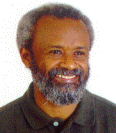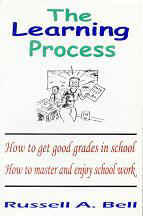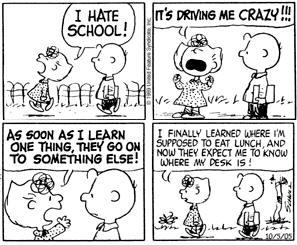Many complain that math is of little use. 'I've never had to divide two fractions after I left school,' is a common sigh. I have three comments to this.
1. I've never had to divide two fractions either.
2. Mathematical problem solving skills I have used on a daily basis.
3. I have found math in unexpected places.
A bit more on 3.
Today, I had to rename these files on my computer:
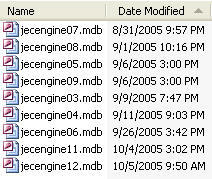
I wanted to rename them in order of date like this:
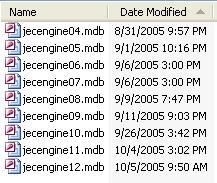
But, when I tried to rename one of them, this monster appeared:

A math problem is born: How few files is it enough to rename to get the job done?
I can rename jecengine06.mdb to jecengine10.mdb without any problems, but I can't rename jecengine04.mdb to jegengine09.mdb without first renaming the existing jecengine09.mdb. I would like to rename the existing 09 to 07, but I can't since 07 already exists.
You might think, this is silly, who cares how few renames have to be done, just do it any way you like, it won't take long anyway. I agree! The practical value in this case is close to nil, but, like Mount Everest, the problem has been discovered and has to be conquered. Why? Because it is a challenge, it is fun, and it feels good to create something.
So, tell me, how few renames do you need?!
